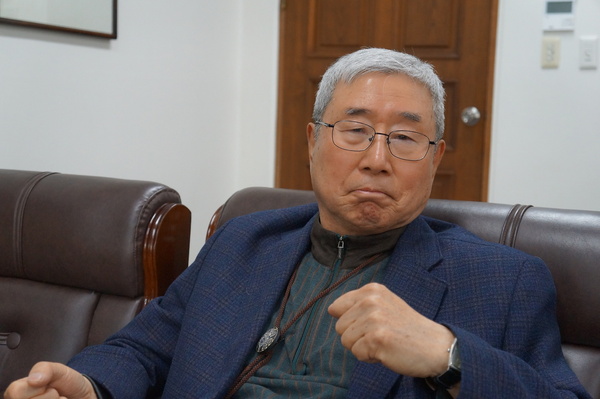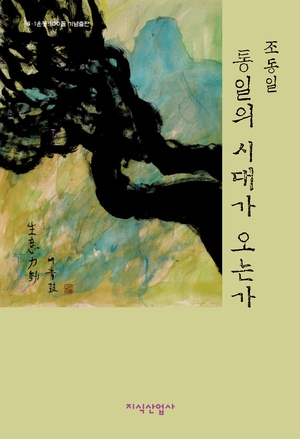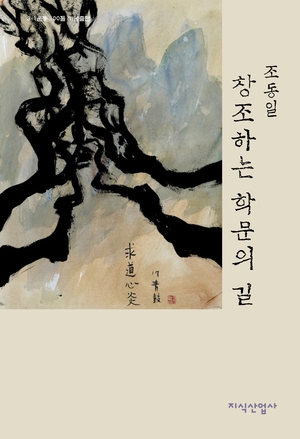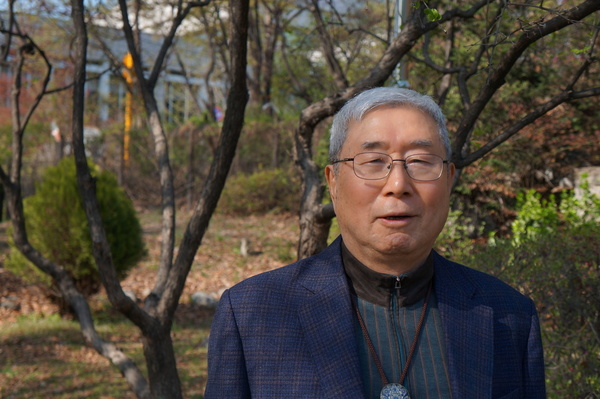Michael Alan Singer
Michael Alan Singer (or Michael A. Singer; born 6 May 1947) is a bestselling author, a meditation center founder, and a former software programmer.[1][2][3][4] His two books, The Untethered Soul (2007) and The Surrender Experiment (2015), were New York Times bestsellers.[5][6] In 1975, he founded Temple of the Universe, a long-established yoga and meditation center for people of any religion or belief to experience inner peace.[7][8]
On the business side, Singer is a notable figure in the medical software industry.[9][10] He created the Medical Manager, one of the first programs that helped medical practitioners to digitize their medical records.[11][12] Medical Manager is now a recognized achievement archived in the Smithsonian Institution.[13][14] When Medical Manager was acquired by WebMD, a billion-dollar public company which focused on medical data management, Singer continued as executive VP, physician software strategies, and head of research and development and chief software architect of WebMD Practice Services.[15][16] He resigned from WebMD in 2005 and focused on writing.[17][18]
Contents
Publications[edit]
Singer has written four books, and all of them belong to the genre of religion/spirituality.
The Search for Truth (1974)[edit]
The Search for Truth (1974) is Singer's first book, which was written long before he became famous as a writer.[3] According to Singer's account, this book was written as a request from his mentor in his university, as the latter insisted the former to “turn in something for him to read” after the young Singer refused to do a doctoral dissertation.[2]
Three Essays on Universal Law (1975)[edit]
Three Essays on Universal Law (1975) is Singer's second book which continues along the theme of his previous book.[4]
The Untethered Soul (2007)[edit]
The Untethered Soul (2007) is Singer's first bestselling book that became a number one New York Times bestseller.[1][5] It is a collection of lectures which cover topics on yogic philosophy, like the concept of self, the meaning of life, and the theory of mind.[19][20] This is also the work which caught the attention of famous talk show host Oprah Winfrey, with whom Singer later gave his first television interview.[21]
The Surrender Experiment (2015)[edit]
The Surrender Experiment (2015) is Singer's second bestselling book, which is in fact an autobiography.[2][17][22][23] In this book, Singer describes his journey of how he became interested in meditation, how he started the Temple of the Universe and the Medical Manager Corporation, etc.[24][25][26] The central theme of the book is his attempts at "surrendering yourself to Life itself", or not letting his personal ego intervene with the flow of life, and how he achieved amazing things as a result.[27][28][29] He also identifies that The Three Pillars of Zen (1965) by Philip Kapleau and Autobiography of a Yogi (1946) by Paramahansa Yogananda were responsible for starting his lifelong exploration of Zen and spirituality.[2][30] Like his first bestseller, this book also managed to become a New York Times bestseller.[5]
Securities fraud scandal[edit]
During his time at WebMD, Singer was prosecuted by the Department of Justice along with other members of the top management for securities fraud.[10][31] The charges were eventually dropped.[9][12] According to Singer’s account, he was being framed by another top executive (the true culprit) who invented the fraud story in order to "work a deal" with the FBI to reduce his own punishment.[14]
References[edit]
- ^ Jump up to:a b Singer, Michael Alan (2007). The Untethered Soul: The Journey Beyond Yourself. Oakland, CA: New Harbinger Publications / Noetic Books. ISBN 978-1572245372.
- ^ Jump up to:a b c d Singer, Michael Alan (2015). The Surrender Experiment: My Journey into Life’s Perfection. New York, NY: Harmony Books. ISBN 978-1629535401.
- ^ Jump up to:a b Singer, Michael Alan (1974). The Search for Truth. Alachua, FL: Shanti Publications. ISBN 978-0914374039.
- ^ Jump up to:a b Singer, Michael Alan (1975). Three Essays on Universal Law: The Laws of Karma, Will, and Love. Alachua, FL: Shanti Publications. ISBN 978-0914374077.
- ^ Jump up to:a b c "Religion, Spirituality and Faith Books - Best Sellers - July 12, 2015". New York Times. 2015-07-12. Retrieved 2018-12-05.
- ^ Richards, Carl (2016-09-19). "Stubborn Grudges Yield Little. Time to Change Your Investing". The New York Times. ISSN 0362-4331. Retrieved 2018-12-05.
- ^ "Temple of the Universe". www.tou.org. Retrieved 2018-12-05.
- ^ Winfrey, Oprah. "Michael Singer on How to Free Yourself of Negative Thoughts". Oprah.com. Retrieved 2018-12-05.
- ^ Jump up to:a b Clark, Anthony (2010-01-13). "Charges being dropped against ex-Medical Manager CEO Singer". The Gainesville Sun. Retrieved 2018-12-05.
- ^ Jump up to:a b Department of Justice (2010-03-01). "Two Former Executives of Medical Manager Found Guilty in Securities Fraud Scheme". Department of Justice. Retrieved 2018-12-05.
- ^ Shepherd, Gary (1997-04-28). "Medical software firm registers $45M in stock". Tampa Bay Business Journal. Retrieved 2018-12-05.
- ^ Jump up to:a b "Government to Drop Charges Against Former Medical Manager CEO Michael A. Singer | News". Baker Botts LLP. 2010-01-13. Retrieved 2018-12-05.
- ^ Ferradaz, Irene (2000-04-05). "Medical Manager to join Smithsonian". The Gainesville Sun. Retrieved 2018-12-05.
- ^ Jump up to:a b Chun, Diane; Adelson, Jeff. "The ups, downs of Mickey Singer". The Gainesville Sun. Retrieved 2018-12-05.
- ^ "Healtheon/WebMD buys Medical Manager". CNET. 2002-01-02. Retrieved 2018-12-05.
- ^ "WebMD Health Corp - Healtheon/WebMD, Medical Manager And Careinsite Amend Terms Of Merger Agreement". WebMD Investor Relations. 2000-06-19. Retrieved 2018-12-05.
- ^ Jump up to:a b Clark, Anthony. "Mickey Singer is back in the spotlight with autobiographical book". The Gainesville Sun. Retrieved 2018-12-05.
- ^ "Singer resigns from WebMD". Tampa Bay Business Journal. 2005-02-09. Retrieved 2018-12-05.
- ^ "Book Review: 'The Untethered Soul'". Wanderlust. 2015-01-27. Retrieved 2018-12-06.
- ^ Allam, Alexandra (2015-05-22). "The Ways the Untethered Soul Is Changing My Life". Huffington Post. Retrieved 2018-12-07.
- ^ "Michael Singer Archives". SuperSoul.tv. Retrieved 2018-12-06.
- ^ Friedman, Jennifer D'Angelo. "The Surrender Experiment: How One Yogi Found "Life's Perfection"". Yoga Journal. Retrieved 2018-12-06.
- ^ Rapsas, Tom (2015-09-20). "The Surrender Experiment: Can letting go improve your life?". Patheos. Retrieved 2019-03-19.
- ^ Vieten, Cassandra (2015-06-05). "Experimenting With Surrender". Huffington Post. Retrieved 2018-12-06.
- ^ "Book Review: The Surrender Experiment". The Global Yogi. 2017-09-13. Retrieved 2018-12-06.
- ^ Vitale, Joe (2015-08-01). "The Surrender Experiment | Joe Vitale of The Secret DVD is Law of Attraction expert and Life Coach". Mr. Fire. Retrieved 2019-03-19.
- ^ Krzys, Amber (2015-07-02). "Miraculous Results of My Surrender Experiment". Fierce Loving. Retrieved 2019-03-19.
- ^ Bergh, Kasey (2016-04-11). "Our Surrender Experiment". When Henry Met Kasey... Retrieved 2019-03-19.
- ^ Dehn, Elizabeth (2016-01-18). "The Surrender Experiment". Beauty Bets. Retrieved 2019-03-19.
- ^ "Thursday, August 22, 2013: Dedicated Issue: New Harbinger Publications". www.shelf-awareness.com. Retrieved 2018-12-06.
- ^ "U.S. v. SINGER | Criminal No. 9:05-cr-00928. | 20091223a40 | Leagle.com". Leagle. Retrieved 2018-12-10.
The Surrender Experiment: How One Yogi Found "Life's Perfection"
- JENNIFER D'ANGELO FRIEDMAN
- UPDATED:
- ORIGINAL:
What would happen if you stopped trying to force your destiny—and just let life be in charge? Michael A. Singer, author of the No. 1 New York Times best-seller The Untethered Soul, attempted to find out. He wound up going from a penniless yogi in the woods to the founding CEO of a billion-dollar public company, almost against his own will.
Singer tells his incredible story in the The Surrender Experiment: My Journey into Life's Perfection Paperback (Harmony Books, June 2, 2015). We asked Singer how yoga and meditation helped him "surrender," both internally and externally, and open himself up to life's gifts.
Yoga Journal: What is "The Surrender Experiment"?
Michael A. Singer: The surrender experiment is a challenge I gave myself to try to allow life to unfold around me without struggling with it. We are all intelligent enough to realize that we are not in control of 99.9 percent of what goes on around us. Our hearts beat, our food digests, and our cells divide -- all without any intervention of our own. Likewise, the planets stay in orbit, and the entire rest of the universe unfolds on its own. We are not controlling any of this, yet it has been unfolding in perfect harmony for billions of years. If the forces of creation can create and maintain the entire universe, every moment, are not the moments unfolding in front of me part of this same universal perfection?
When I was in my early twenties, I took one look at this and realized that all the moments of creation are part of the same interrelated perfection. They have nothing to do with me; they belong to the forces that created them. All that is happening each moment is that I’m seeing the result of 13.8 billion years of forces that interacted together to create exactly what is in front of me. That being the case, I decided to experiment with surrendering to that perfection instead of listening to what my preference-driven mind had to say about it. Specifically, when something appears in front of me, I try to honor and respect the enormity of its origins, rather than immediately judging whether I like it or not. That is the surrender experiment, and my new book is about what ended up happening as I aligned myself with life instead of struggling to align life to me.
YJ: In the book, you talk a lot about "the voice in your head." Please explain what you mean by this voice.
Singer: This "voice in your head" was the main topic of my last book, The Untethered Soul, and it forms one of the most important aspects of spirituality. All day, all the time, our mind creates thoughts: "I hope she’s there already because I don’t like waiting," "Why did he say that? I would never say something like that." And on and on it goes. But how do you know that these thoughts are going on in your head? The obvious answer is because you are in there, and you hear them. Believe it or not, that answer is the basis for all of yoga: I’m in here, and I hear the thoughts. Who's in there? Who is hearing the thoughts? And you must be separate from the thoughts if you hear them. Over 40 years ago, I began referring to this as "the voice in my head." Finding out about that voice -- why it talks all the time, and why it says what it says -- is a fascinating topic. But discovering who you are, the consciousness that notices that voice, this falls into the category of mindfulness, witness consciousness, and self-realization. And that is the heart of yoga.
"I never took my eye off of the spiritual path, not even for a moment. My every breath is yoga; the very beat of my heart is yoga. Yoga has not played a role in my journey -- my entire journey has been yoga."
YJ: How did meditation quiet the voice for you?
Singer: When I first started to meditate, I didn’t really know what I was doing. I just wanted to shut up that incessant chatter in my head. So I took the time each day to sit by myself in a meditation posture and use my will to either push away the thoughts or struggle to turn my attention onto something else -- like a mantra or visualization. That created some quiet, but it didn’t last, and it was a struggle to get into a really quiet state.
As I matured in my spiritual practices, I began to surrender inside, just like I was doing in my outer life. I just allowed whatever thoughts needed to arise, to arise, and simply tried to relax instead of engaging with them. No struggle, just deep relaxation -- regardless of what the voice was saying. Over time, like magic, my awareness lost interest in the thoughts and ceased to become distracted by them. If I walk into a room with a television on, I can notice it is there, but I don’t have to actually watch it. Likewise, I can notice that the voice is saying something, but I don’t have to actually listen to it. That became my meditation: deeply relaxing and not engaging in anything the voice of the mind was saying. Over time, as I let go of the chattering mind, I began to fall into beautiful states within, like deep peace or waves of joy and love. This began happening both during meditation and during daily activities. Interestingly, when the inner state becomes beautiful, the voice of the mind has much less to say. It’s as though the vast majority of its talking was about how to be OK. If you are already OK, both the heart and the mind become still and melt into the beauty of the moment. That is the gift of yoga.
Also see Guided Meditations
YJ: Explain what you mean by opening yourself up to the flow of life. How can we open ourselves to life's gifts, and let the "flow of life" be in charge?
Singer: You open by not closing. Events are unfolding in front of you, and this flow of events has been going on for billions of years, everywhere. Can you handle that? It’s really that simple. Are you ready, willing, and able to allow the universe to manifest in front of you without freaking out?
The problem is that we can’t do it. Even though moments are unfolding everywhere, and that’s fine with us, when we see reality unfold in front of us, we judge it: "I like it"; "I don’t like it"; "I wish something else was happening." We have already made up our minds how we want reality to be -- and now we struggle with creation, or at least the part that’s in front of us. To let the "flow of life" be in charge means we first put aside our made-up preferences and respect what is unfolding in front of us. After all, it is the result of everything that has happened for 13.8 billion years, and now it is presenting itself to you. First respect it, then with love and compassion raise it as it passes by you. That is how you become open to life’s gifts.
Also see Do-Anywhere Daily Mindfulness + Gratitude Practice
YJ: How has yoga played a role in your journey?
Singer: Since I was 22 years old, and I am now 68, yoga has been my entire life. I was not a business person who was into yoga -- I was a yogi who was led into business (Singer was the founding CEO of the Medical Manager Corporation from 1997-2000, when the company merged with WebMD). I was not a husband with a beautiful daughter and now three grandchildren who happened to also practice yoga. I am a yogi who was gifted with a beautiful wife, daughter, and grandchildren. I never took my eye off of the spiritual path, not even for a moment. My every breath is yoga; the very beat of my heart is yoga. Yoga has not played a role in my journey -- my entire journey has been yoga.
YJ: How did your practice help you stay centered (and peaceful) during your amazing rise to success as founding CEO of a billion-dollar public company and also during your indictment on federal fraud conspiracy charges (which were later dropped)?
Singer: Though I have consistently maintained daily practices, my true practice of yoga is done inside at all times. It is this internal practice of constantly letting go of whatever disturbance arises within that has allowed me to stay centered through these amazing situations life has presented to me. Yoga is like a fine wine that becomes better over time. You start by letting go of the little things that irritate you for no reason, like the weather, or someone else’s attitude. Of what purpose is it to get disturbed by things that are just passing by and are pretty much out of your control? So you begin the practice of allowing the shifts in your inner energy to just pass through internally. You do this by deeply relaxing and giving them the space they need to pass. It is very much like relaxing into an asana. The more you relax, the easier it becomes, until at some point it becomes an enjoyable experience. It can be the same inside if you begin relaxing and releasing early enough in the process. Then something bigger happens in life that challenges your willingness to relax and let the reactionary disturbance pass by within. Your tendency is to resist the uncomfortable feeling and control your environment so that you don’t have to deal with the inner disturbance. But your commitment to yoga demands that you let go and use each situation life puts you in to go beyond your comfort zone. This is the true practice of yoga, and it becomes your way of life.
But what will happen to my outer life if I commit myself to letting go within? That is the subject matter of The Surrender Experiment. What happens is phenomenal. You begin to see a perfection between what you need to let go of inside and what unfolds outside. You are presented each moment with the perfect situations to bring up the issues you have stored within, which in yoga we call samskaras, and you are then given the opportunity to let them go. If you do this each time, you will achieve the goal of yoga -- a liberated energy flow that constantly bathes you with love and bliss as it rises within you. So becoming CEO of a public company and being wrongly charged by the federal government are both the same -- they are amazing opportunities to let go of yourself at a very deep level and learn to surrender to the phenomenal perfection of a life devoted to yoga.
Also see Kick Bad Habits for Good with Kundalini Yoga


 조동일 서울대 명예교수. 강성만 선임기자
조동일 서울대 명예교수. 강성만 선임기자 <통일의 시대가 오는가> 표지.
<통일의 시대가 오는가> 표지. <창조하는 학문의 길> 표지.두 책이 제목은 다르지만 공통으로 초점을 맞춘 주제는 창조학이다. 그는 2017년 한국연구재단 인문 저술지원사업에서 탈락한 자신의 사례까지 언급하며 “창조 학문을 저해하는” 학술 정책을 강하게 질책했다. 재단은 조윤제, 김태준, 이가원, 이우성 등 국문학 선도 연구자 12명을 연구 고찰하겠다는 조 교수의 연구비 신청을 연구 필요성에 대한 설명이 불충분하다며 탈락시켰다.
<창조하는 학문의 길> 표지.두 책이 제목은 다르지만 공통으로 초점을 맞춘 주제는 창조학이다. 그는 2017년 한국연구재단 인문 저술지원사업에서 탈락한 자신의 사례까지 언급하며 “창조 학문을 저해하는” 학술 정책을 강하게 질책했다. 재단은 조윤제, 김태준, 이가원, 이우성 등 국문학 선도 연구자 12명을 연구 고찰하겠다는 조 교수의 연구비 신청을 연구 필요성에 대한 설명이 불충분하다며 탈락시켰다. 조동일 서울대 명예교수. 강성만 선임기자
조동일 서울대 명예교수. 강성만 선임기자